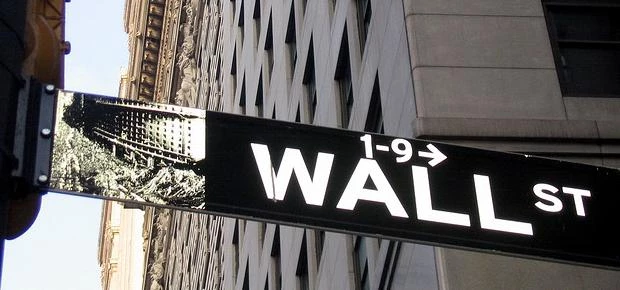
Partner Article
Has the Wolf of Wall Street Deterred Investors?
Martin Scorsese’s 2013 blockbuster The Wolf of Wall Street, staring Leonardo DiCaprio, depicts the true-life story of stockbroker Jordan Belfort. Fuelled with sex, drug use and elaborate wealth, the film tells the story Belfort’s journey from small time stockbroker to owner of multi-million dollar trading company, Stratton Oakmont — and how he conned investors out of millions of dollars in the process.
Business
Transforming Stratton Oakmont from its early beginnings was a journey which began in a used car sales room, and resulted in a multimillion-dollar company. As head of the company, Belfort lived a life of excess. A drug addict, he was a heavy user of a multitude of narcotics.
Whilst in complete control of Stratton Oakmont, Belfort actively encouraged staff to engage in sexual and public encounters with prostitutes. Drug use was a common occurrence within the office, and it is reported that employees were encouraged to have sex in the buildings glass lift. Debauchery was encouraged throughout the workforce.
Victims of the Wolf
Those who lost money as a result of investing in Stratton Oakmont have criticised DiCaprio and the film for glamourizing their loss. Claiming that it fictionalises Belfort into a mythological character, making no effort to address the true consequences of his actions. The company’s thousand stockbrokers eventually swindled millions of dollars out of 1,500 investors, all eager to expand their portfolios and increase their profits.
Influence on the Stock Market
Watching the film, it is understandable why investors may now question whether or not the stock market is a safe environment to work in. Arguably, those who invested in Belfort’s company knew its volatile nature to begin with. However recollections of their multi-million dollar losses could deter those just starting out in the field, forcing them to consider whether or not the profits offered to them by trading companies are too good to be true. Comparatively, those experienced in the stock market could begin to doubt the legitimacy of thewealth management firms they have already invested in.
A little bit of movie history may help us to understand if this kind of film can deter investors. Drops in the Standard and Poor’s 500 index after the releases of 1987’s Wall Street, 2000’s Boiler Boom, and 2009/10’s Wall Street: Money Never Sleeps may suggest, that in the past investors have been put off by movies depicting Wall Street. However, it can also be argued that these films are reactions to what is already happening on Wall Street. All of these movies came directly after or during a period of down turn on the stock market.
So what happened after the release of The Wolf of Wall Street? Did Leonardo DiCaprio’s portrayal of a greed fuelled Belfort and the depiction of the company he built cause any uncertainty in the market?
In a word… No.
A comparison of the S&P 500 index value, between the time of the film’s release in December 2013 and March 2015, shows an inflation of 8.7%. Increasing from $1,848.36 to $2,067.89 across the 15-month period. Standard and Poor’s 500 index level is an analysis of 500 stocks, chosen for their market value, and is considered to be the most accurate analysis of the US stock market.
Whilst the assessment shows an inconsistency in the movement of stock value since the film’s release, it is apparent that investors have not been deterred at all.
The Bottom Line
Films about Wall Street are a staple of the Hollywood machine. From Wall Street in 1987 to The Wolf of Wall Street in 2013, audiences continue to be entertained by the fictional and true stories of those at the heart of the financial world. Often these movies appear to tie in with drops in the US Stock Market. However, nearly all have come as a reaction to events and not a precursor to them. In the case of The Wolf of Wall Street, arguably released as the world wide economy was entering recovering, there is no real evidence to suggest that investors have been deterred.
As an all start cast, including Brad Pitt, Steve Carell, Christian Bale and Ryan Gosling assemble to start filming on the upcoming: Big Short, an adaptation of Michael Lewis’ book about the events leading to and directly after the financial crash of 2008. They can certainly expect to be filling cinemas across the globe. Deterring investors away from the stock market however is something they should probably not set their sights on.
This was posted in Bdaily's Members' News section by Chloe Hashemi .








 Raising the bar to boost North East growth
Raising the bar to boost North East growth
 Navigating the messy middle of business growth
Navigating the messy middle of business growth
 We must make it easier to hire young people
We must make it easier to hire young people
 Why community-based care is key to NHS' future
Why community-based care is key to NHS' future
 Culture, confidence and creativity in the North East
Culture, confidence and creativity in the North East
 Putting in the groundwork to boost skills
Putting in the groundwork to boost skills
 £100,000 milestone drives forward STEM work
£100,000 milestone drives forward STEM work
 Restoring confidence for the economic road ahead
Restoring confidence for the economic road ahead
 Ready to scale? Buy-and-build offers opportunity
Ready to scale? Buy-and-build offers opportunity
 When will our regional economy grow?
When will our regional economy grow?
 Creating a thriving North East construction sector
Creating a thriving North East construction sector
 Why investors are still backing the North East
Why investors are still backing the North East